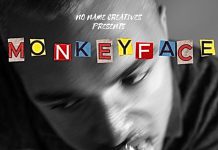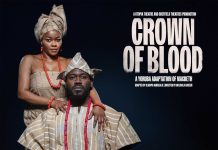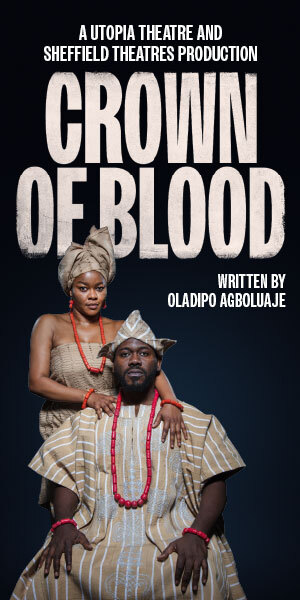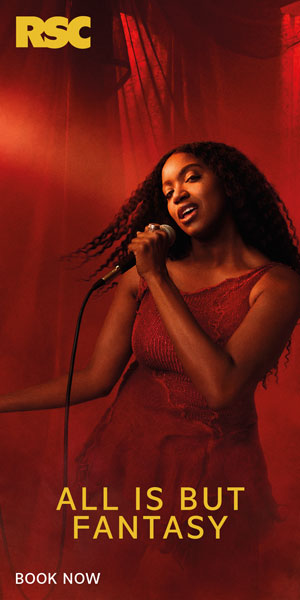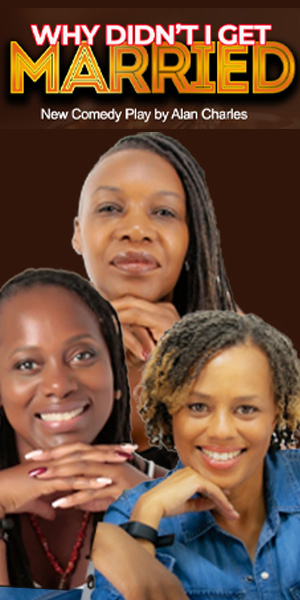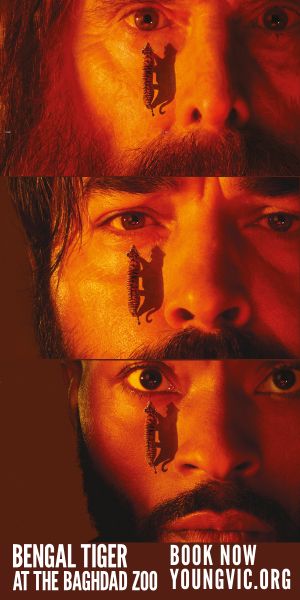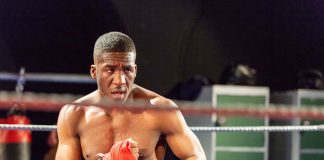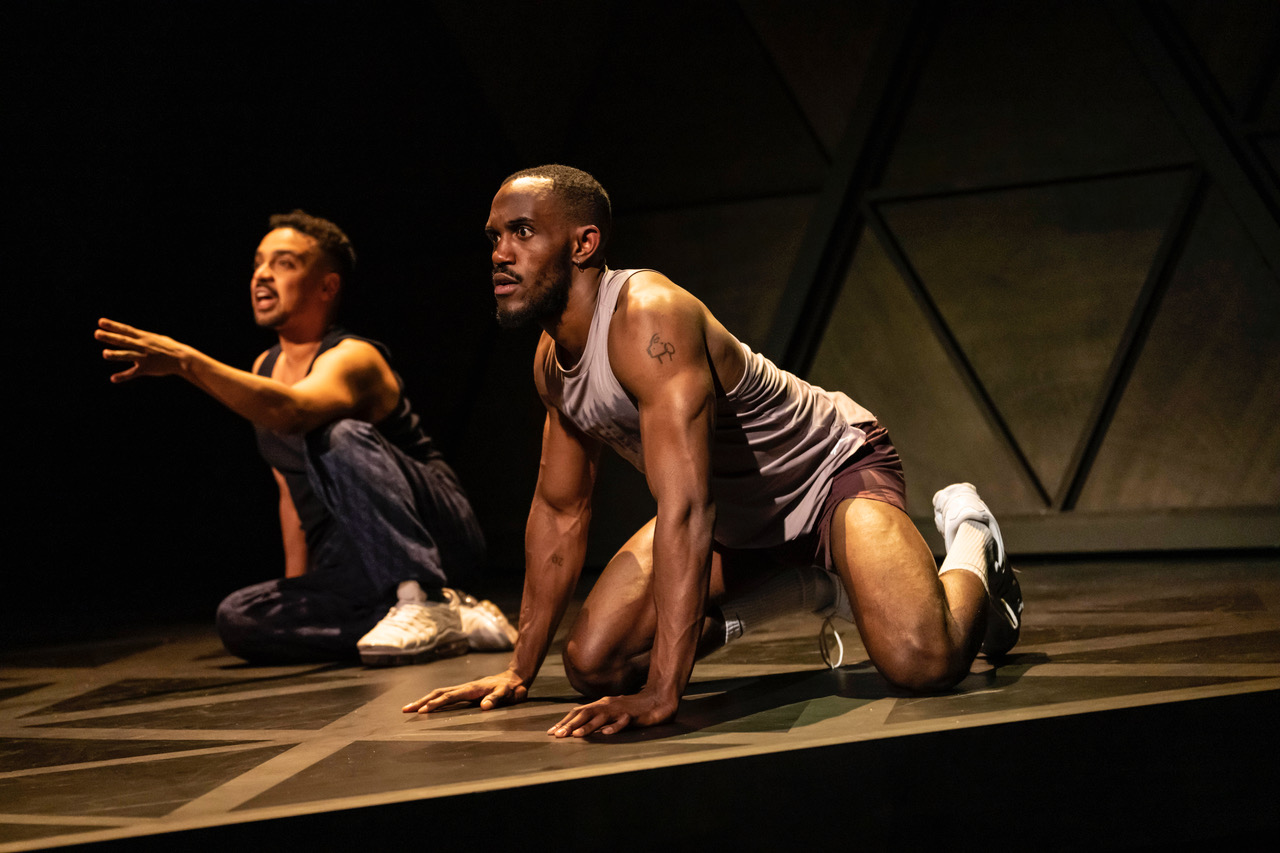
It’s oddly engrossing watching a character navigate life as insecurely and as brazenly as David in Danny Lee Wynter’s BLACK SUPERHERO. You can’t feel sympathy for him even as he overthinks and second-guesses his relationships and friendships. And why wouldn’t he overthink?
Compared to the other much more successful Black gay actors in his friendship circle – good-natured Raheem (Eloka Ivo) and American, smooth-talking King (Dyllón Burnside), who’s about to embark on a press circuit for the latest film in his career-defining role as superhero Craw in a DC-like franchise – David is a nobody. He’s a bit-part actor about to turn 40, living with his younger sister Syd (Rochenda Sandall), having made it through to the other side of a debilitating mental health crisis.
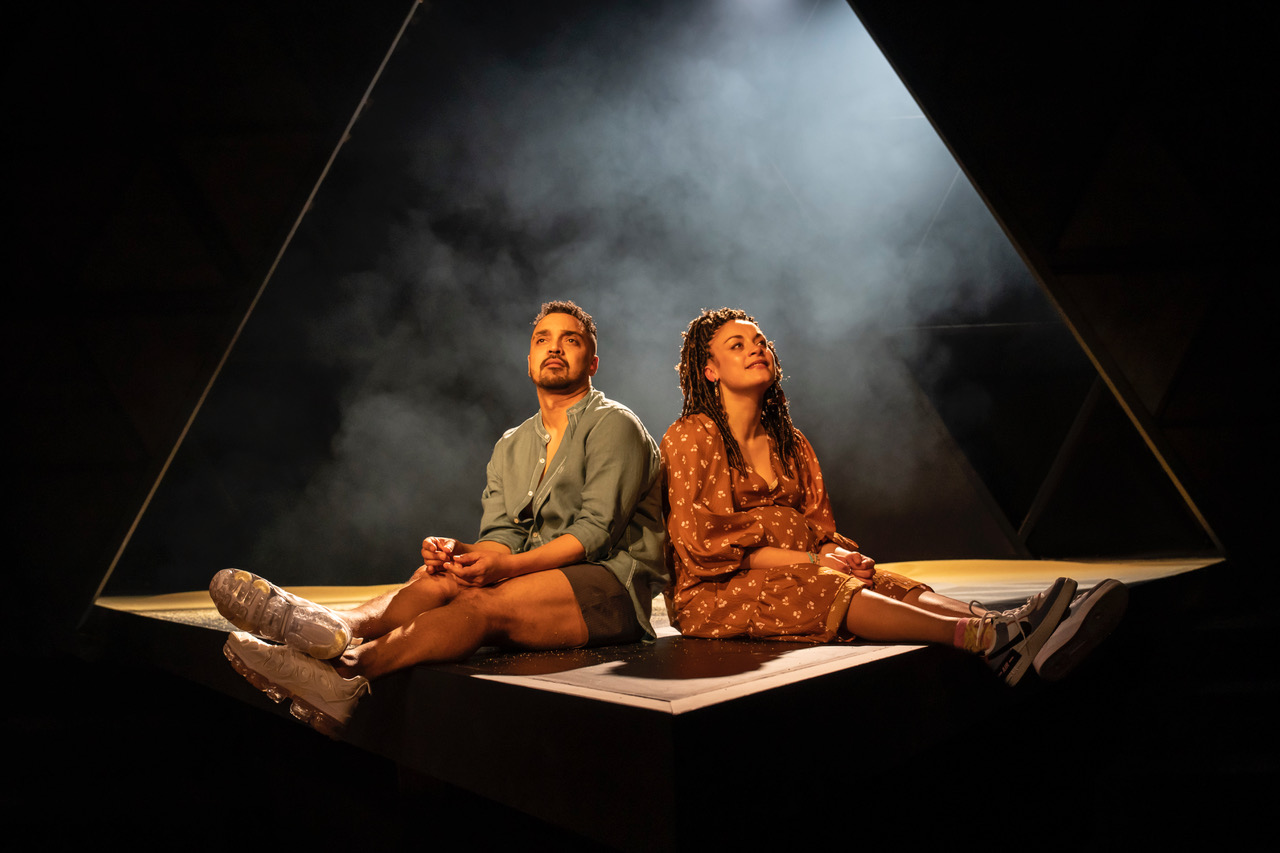
Anyone in his position would overcompensate for his station in real life by making themselves the star of their own fantasy love triangle – Wynter, as well as this being his writing debut, himself plays leading man David, whose one-night stand with King snowballs into a surreal fantasy where he is rescued by superhero Craw, donned in his Batman-esque garb. These dream-like sequences are as beautifully staged by director Daniel Evans and his team of designers as they are incredibly haunting.
The more we see David stress about his ranking in King’s open relationship with his nauseatingly white liberal husband Steve (Ben Allen), the more extravagant these Craw fantasies become – the one place where David is at the centre, even if he is in a position of sexual submission. Despite how this is only really a love triangle in David’s head, the imposing triangular structure of Joanna Scother’s set pulsates and dominates with an intensity that makes you wonder if David’s fantasies are real.
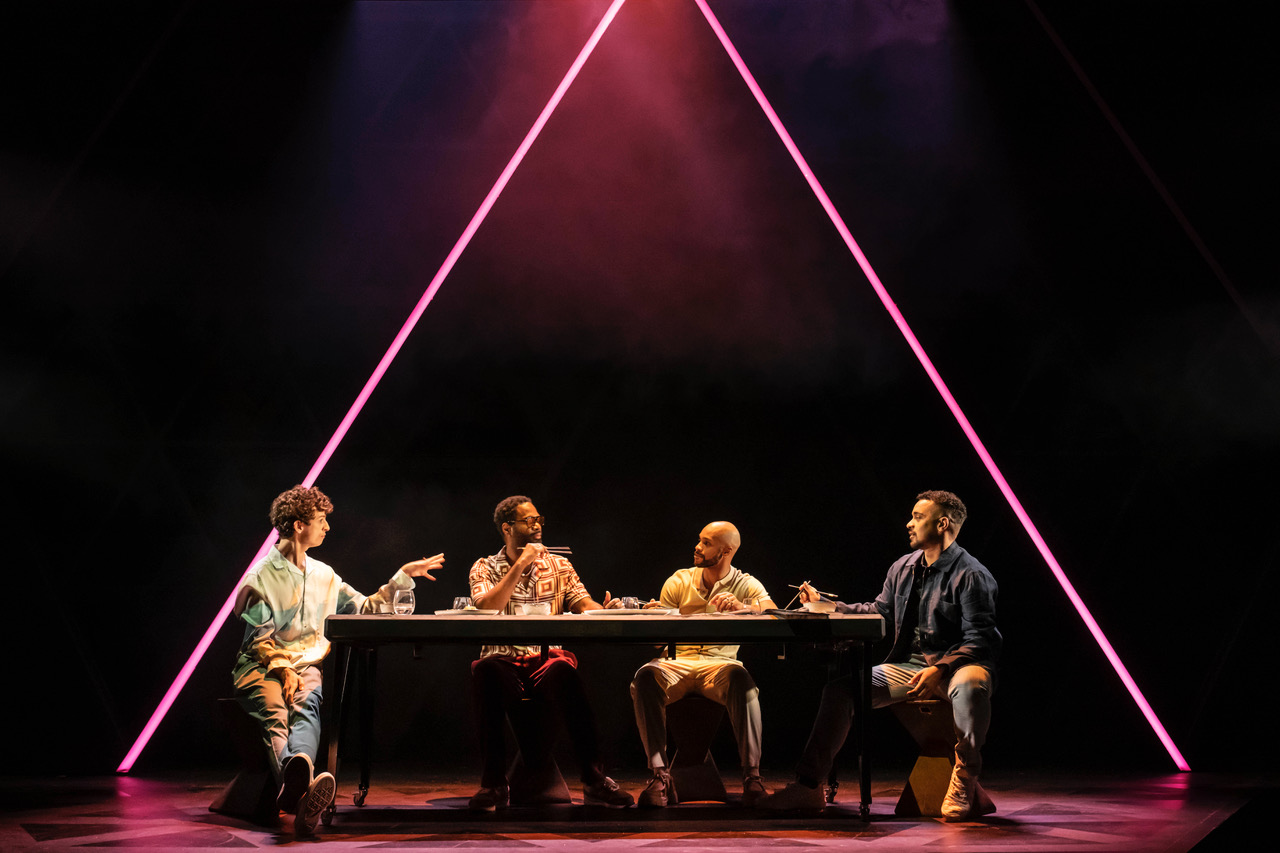
For every moment of sincere vulnerability, Wynter also gives us charged conversations of politics – identity, respectability, queer, racial – in which David is outspoken about his beliefs, even if he bristles against friends, his sister, and even strangers. During one riotous scene, we see him scoff while recounting Stevie’s comment that white liberals who ‘bankroll British theatre’ should be commended, not critiqued for their whiteness.
This is one of many perceptive moments for those who may be seated in front of these actors to pause and self-reflect. BLACK SUPERHERO addresses two audiences throughout – those who can laugh at the quips and jokes about race and representation, about being Black and gay; and those who can easily dismiss this play as preaching social consciousness. Wynter’s ambitious satire is punchy and animated, all the while interrogating its characters’ – and our – ideologies, and with Daniel Evans’ direction, never fails to hit its comedic beats.
Because this play is juggling drama alongside this satire, however, the scenes overall feel disjointed, not helped by the threadbare plot. The second act especially suffers from the uneven distribution of tone in this play, and the burden of having to sustain this sudden emotional depth causes it to drag a little. In one scene between David and his brutally honest and blunt sister, the audience gets a belated insight into David’s suicidal ideation – areas which should have perhaps been probed much earlier.
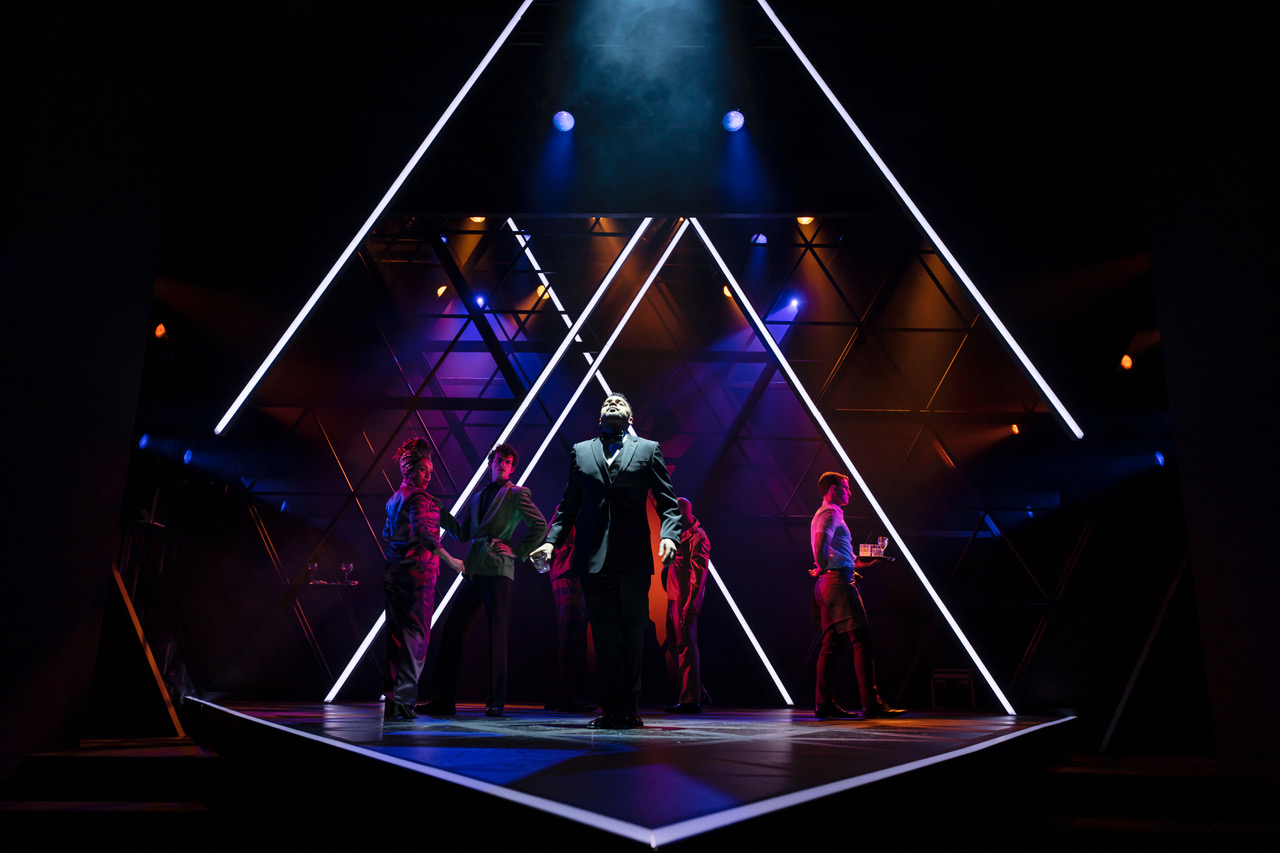
The darker BLACK SUPERHERO gets, as David journeys from queer raves and grimy motels in London to international press junkets as King’s plus one, the less it becomes about his fantastical Black superhero and more about his childhood trauma – and how these fantasies are a self-destructive coping mechanism in lieu of confronting the matter at hand. Evans and Wynter purposefully don’t try to therapise this character to their audience – a choice that may leave you feeling unsure of what specific kind of punch this play was supposed to have delivered.

